Emerline has developed an innovative AI-powered chatbot document search service tailored for B2B customers, designed to significantly enhance document management and retrieval processes in a business environment.
Building an AI-Powered Formulation Platform for the Chemical Industry


Emerline developed a custom AI tool that enables companies to train models on their own formulation test results, speeding up R&D processes in the chemical and cosmetics industries.
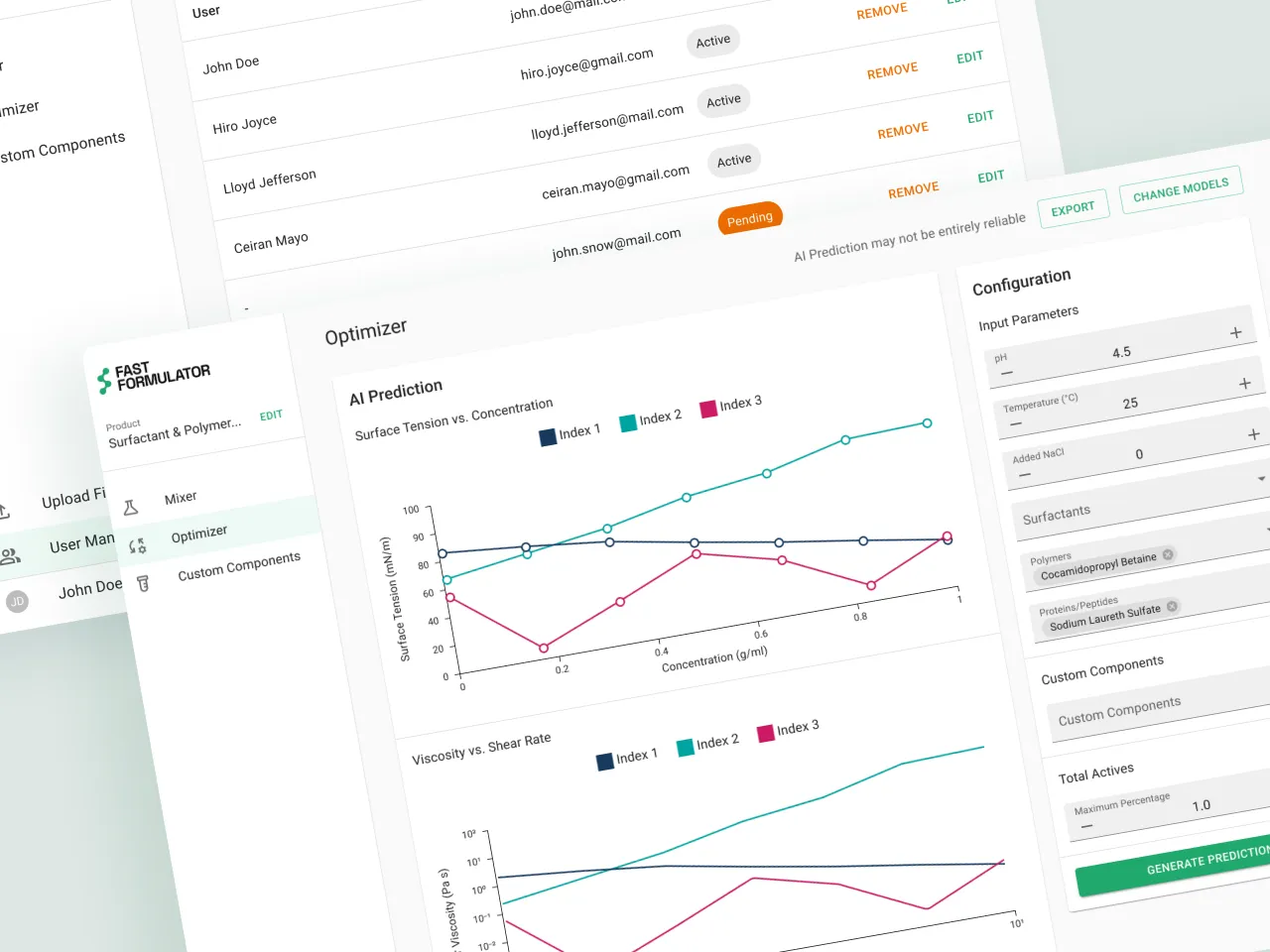
Background
FastFormulator is a company that provides an R&D platform to help businesses in the chemical, food, and cosmetic industries improve product design. It uses AI and machine learning to suggest component combinations and ratios that match specific physical or physiochemical targets, such as viscosity or surface tension, thus optimizing product formulations.
Their mission is to reduce the time and effort chemists and other scientists spend on manual experiments. In traditional workflows, researchers often need to run dozens of iterations, adjusting components and proportions until they reach the desired product characteristics — a process that’s time-consuming and costly.
AI-based tools can help reduce the number of experiment iterations, saving time and money. However, most available solutions are not built for formulation tasks and often produce unreliable results. FastFormulator saw this gap and set out to develop a more accurate, domain-aware system.
Our approach
Our role as the development team was to:
Also, throughout development, we had to address the typical R&D pain points:
Challenge
With the idea for a specialized platform in place, the client outlined the main challenges they needed to address:
- Too many manual experiments
- High R&D costs
- Long lead times to reach target product properties
The client needed a flexible, industry-aware tool that could adapt to various formulation scenarios — from food to cosmetics — without compromising prediction quality or user experience.
To make that possible, the platform had to:
- Accept experimental data in a structured, accessible way.
- Learn from each client’s input and adapt predictions accordingly.
- Keep data isolated and secure for each customer.
- Provide a clean, easy-to-use interface for users without a data science background.
It also had to manage out-of-the-box components, like surfactants or oils, using an admin interface, while letting each customer upload their own substances with chemical formulas using SMILES notation (in a computer-readable format).
These requirements defined the technical direction for the solution, covering overall architectural choices, development tools and frameworks, and plans for the subsequent development process.
Solution
Each company can train its own models within the platform using internal data, without risking exposure. This ensures both data security and result accuracy, as predictions are based on each customer’s real-world experiments rather than generalized datasets.
The solution includes several key features:
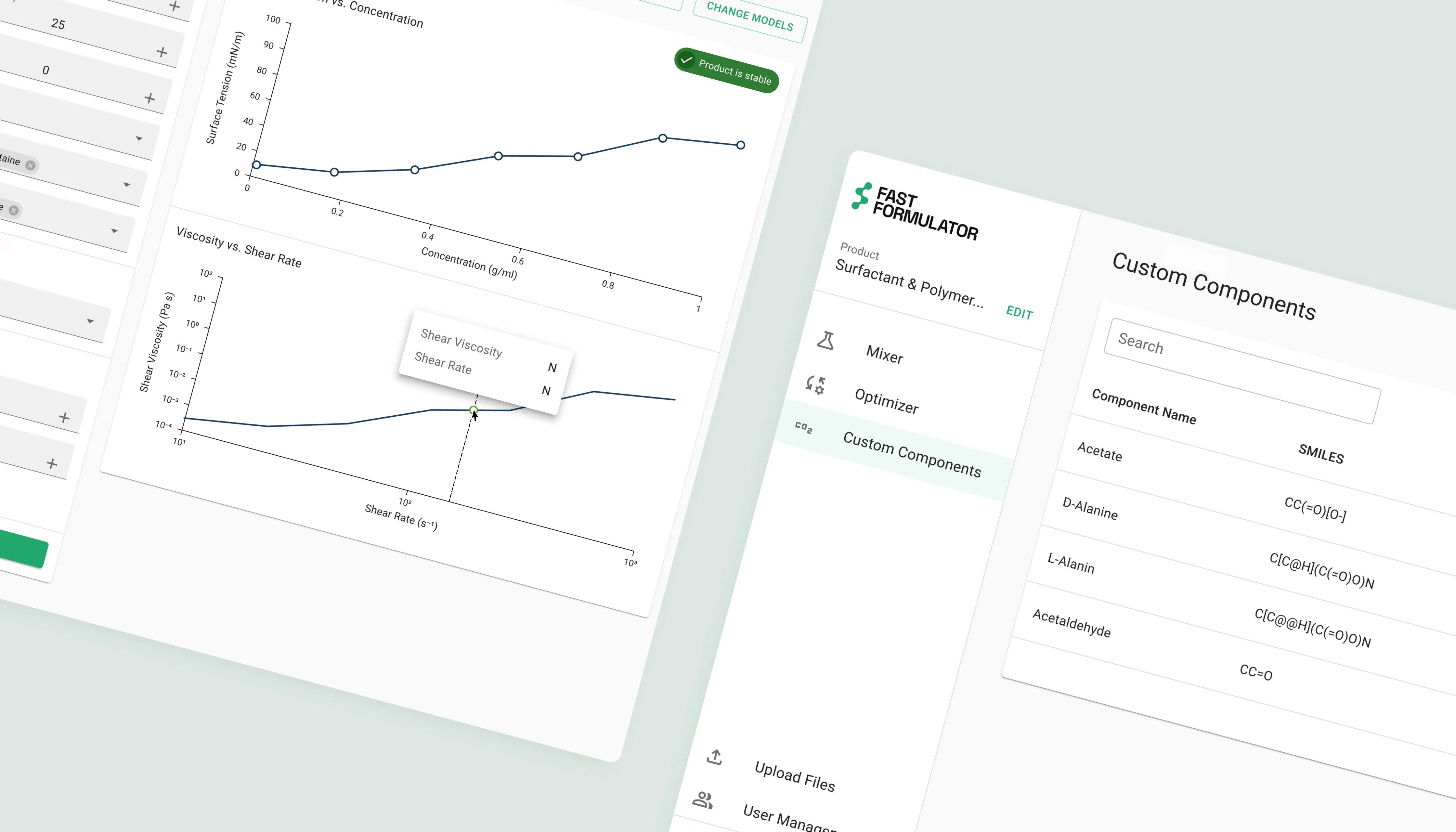
Admin panel
User authentication and authorization
User management
Data upload and model training
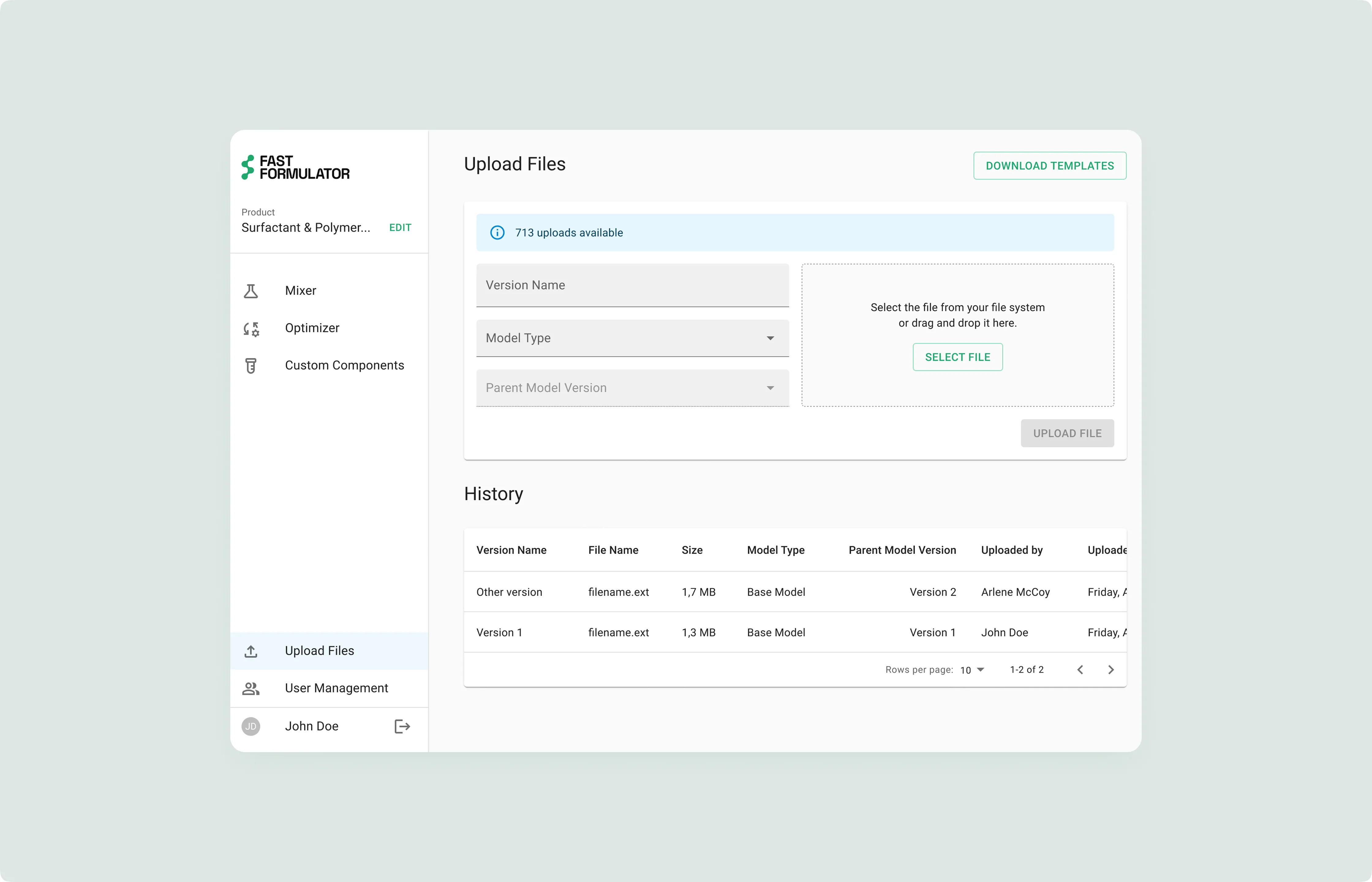
Custom components
Mixer tab
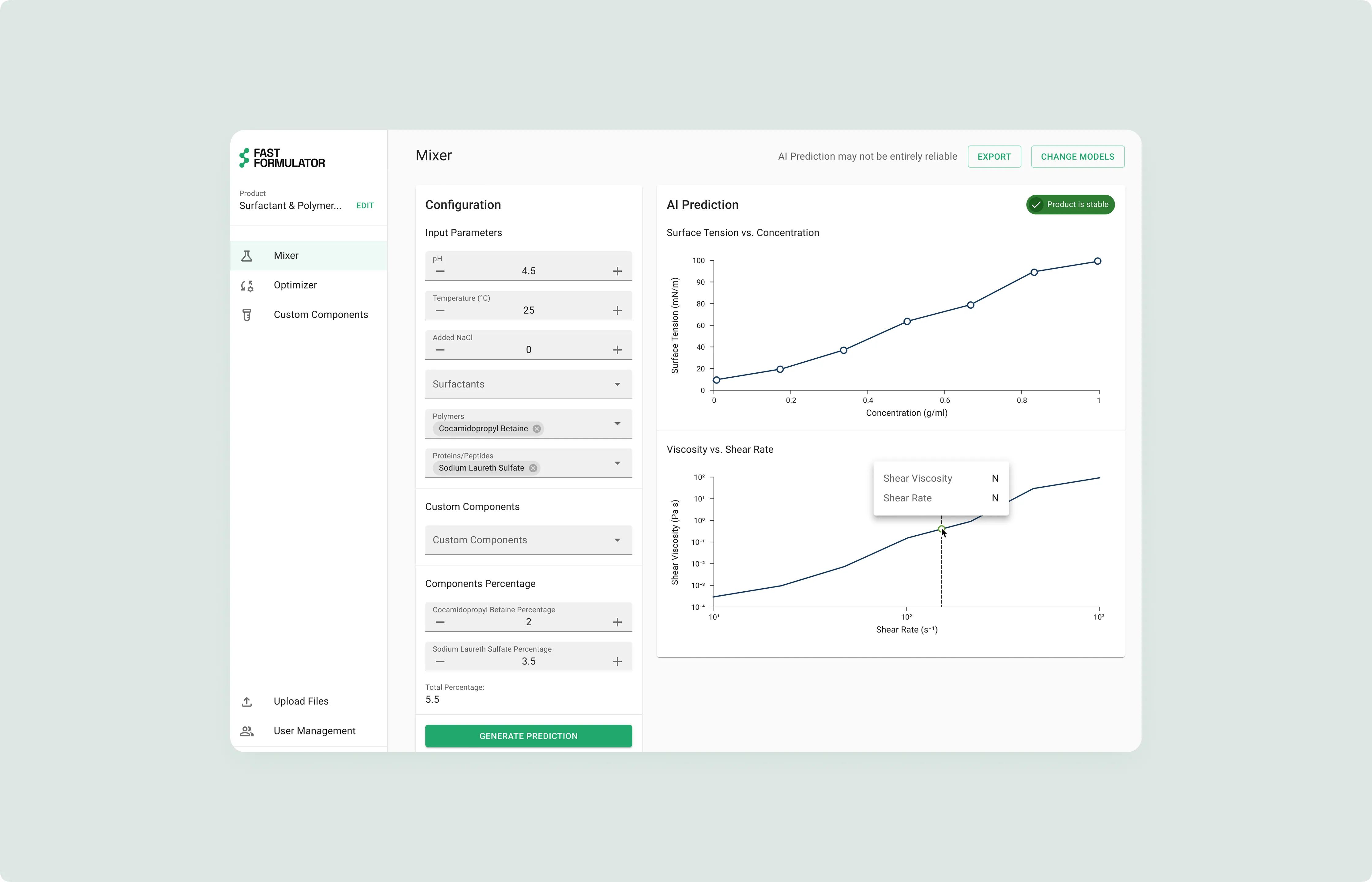
Optimizer tab
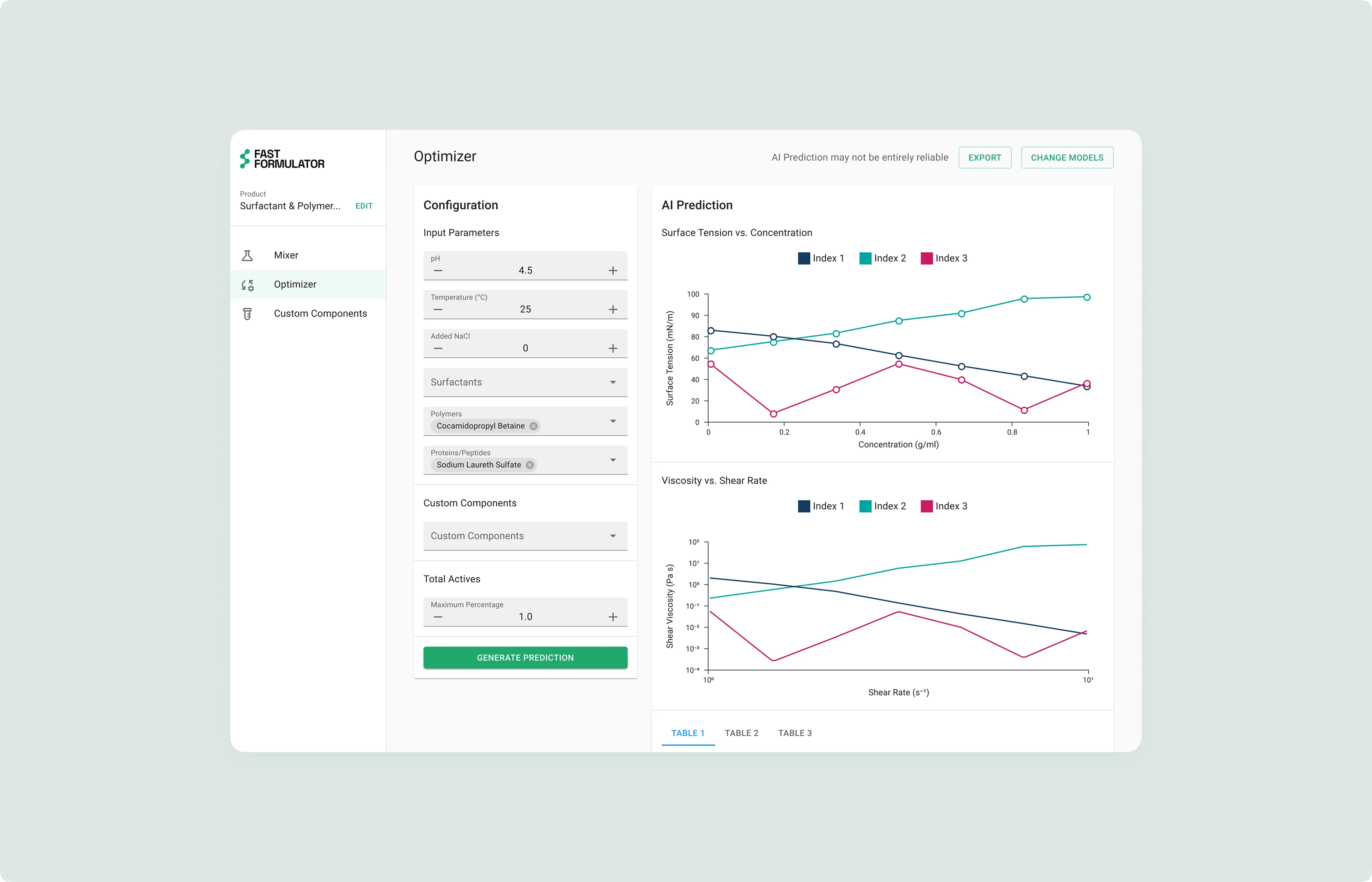
Component and target management
ML model usage
The platform uses machine learning to identify the best-performing formulation — including both the choice of components and their ratio — that is most likely to reach the desired properties.
Compared to traditional models, FastFormulator’s approach reduces the amount of training data needed.
The ML engine is deployed as a containerized service and remains under the control of each customer, meaning the client can develop and fine-tune their models securely and independently.
Technology Stack
Results
We successfully delivered a digital platform that helps chemists move from manual experimentation to faster, data-driven formulation.
Our solution enabled faster, cost-wise R&D and accurate outcomes, as follows:
- Provided chemists with relevant formulation suggestions based on the real experimental data.
- Reduced the need for repeated manual tests, saving time and resources.
- Helped users quickly evaluate different component combinations without running physical experiments.
- Afforded a clean, secure, and accessible environment for working with proprietary data.
- Ensured that all data remained customer-specific: predictions from one company’s model were not influenced by data from others.
With FastFormulator, users can approach product development with more confidence and run their experiments more efficiently. The platform sets the stage for smarter R&D workflows while remaining flexible enough to support use cases across multiple industries.
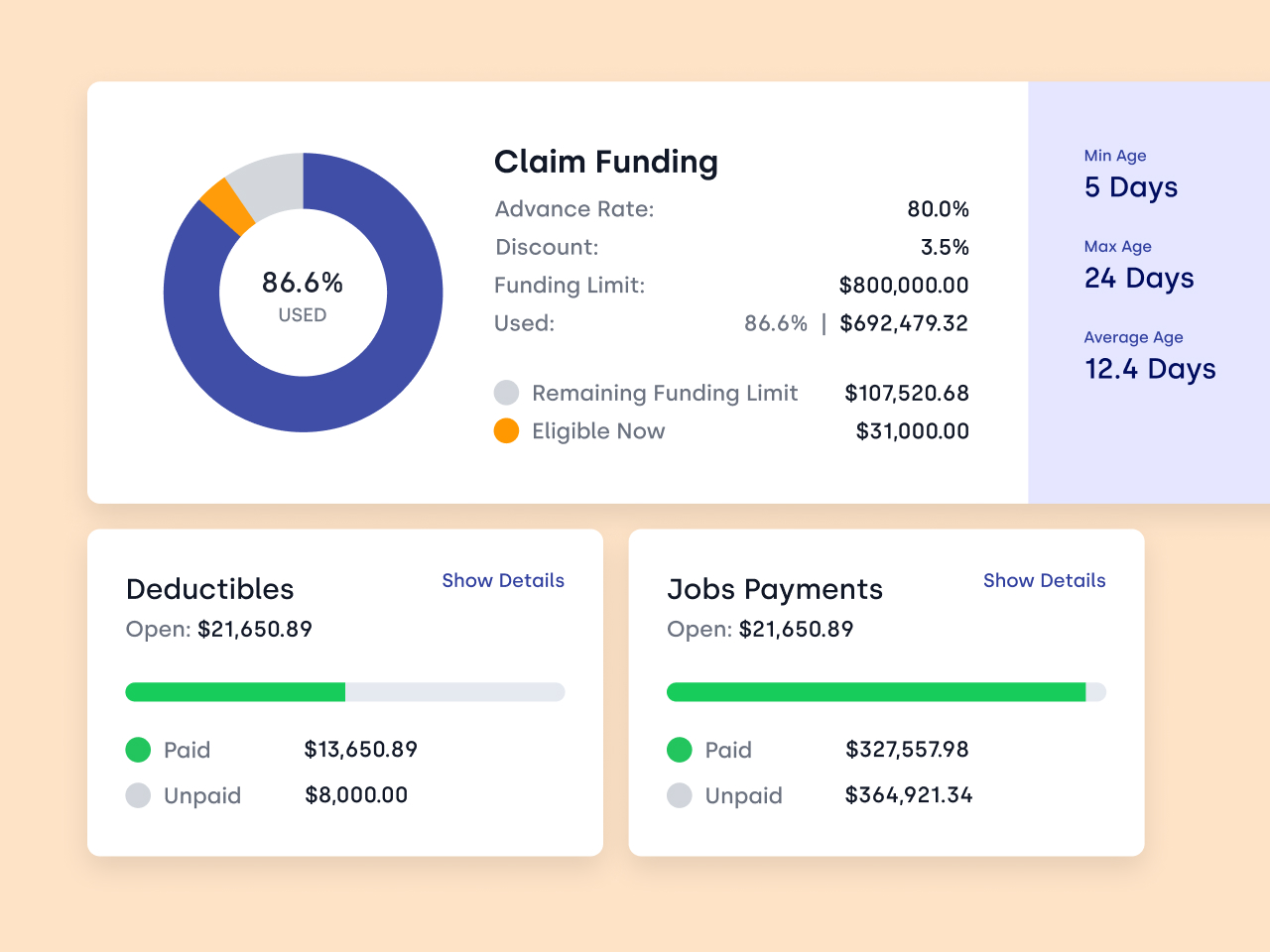
Helping an ambitious fintech startup build up its MVP to a full-fledged production platform — in 14 months
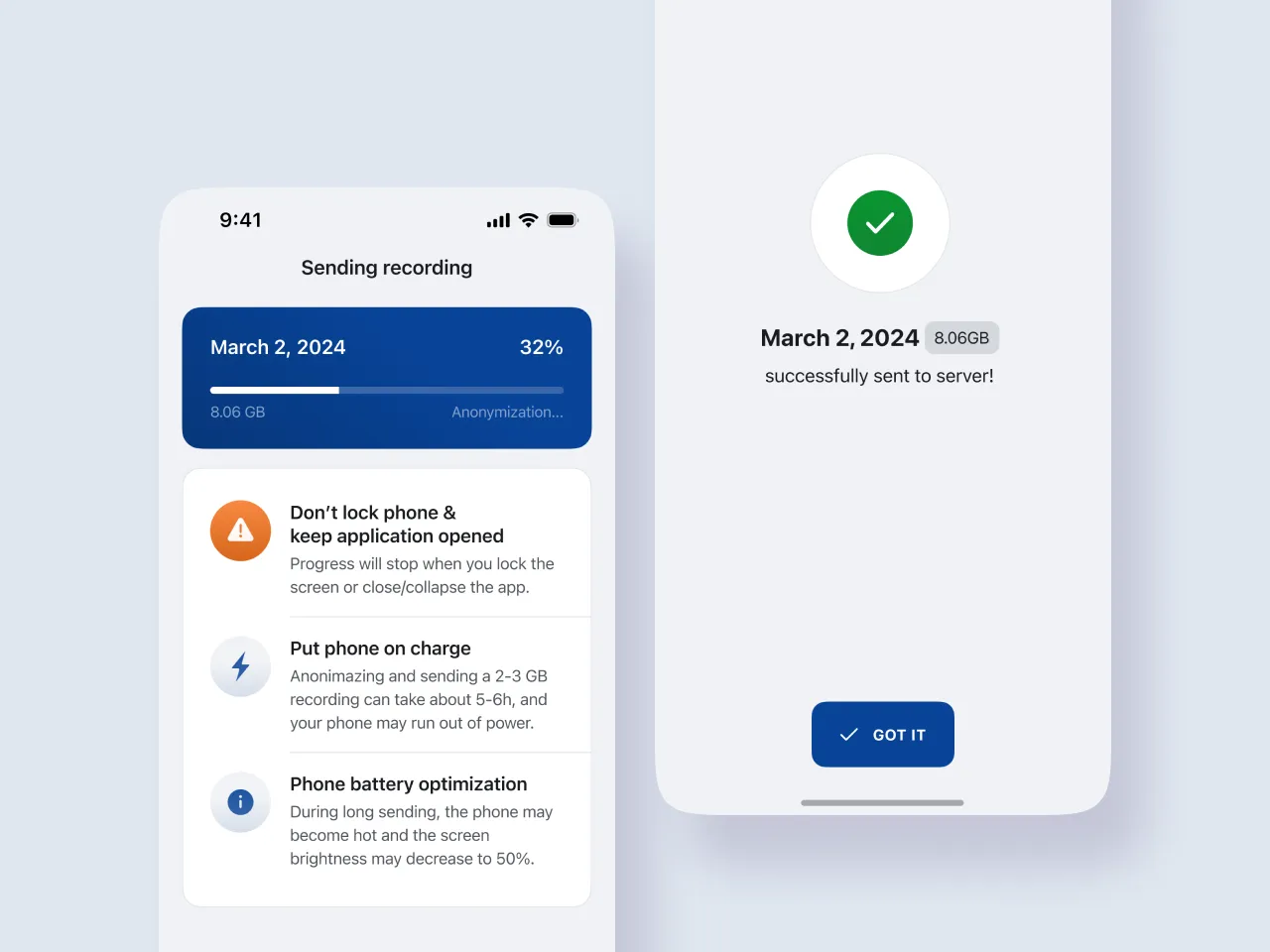
Advanced AI-powered iOS Application Integrated with Innovative Health Tech Software Platform
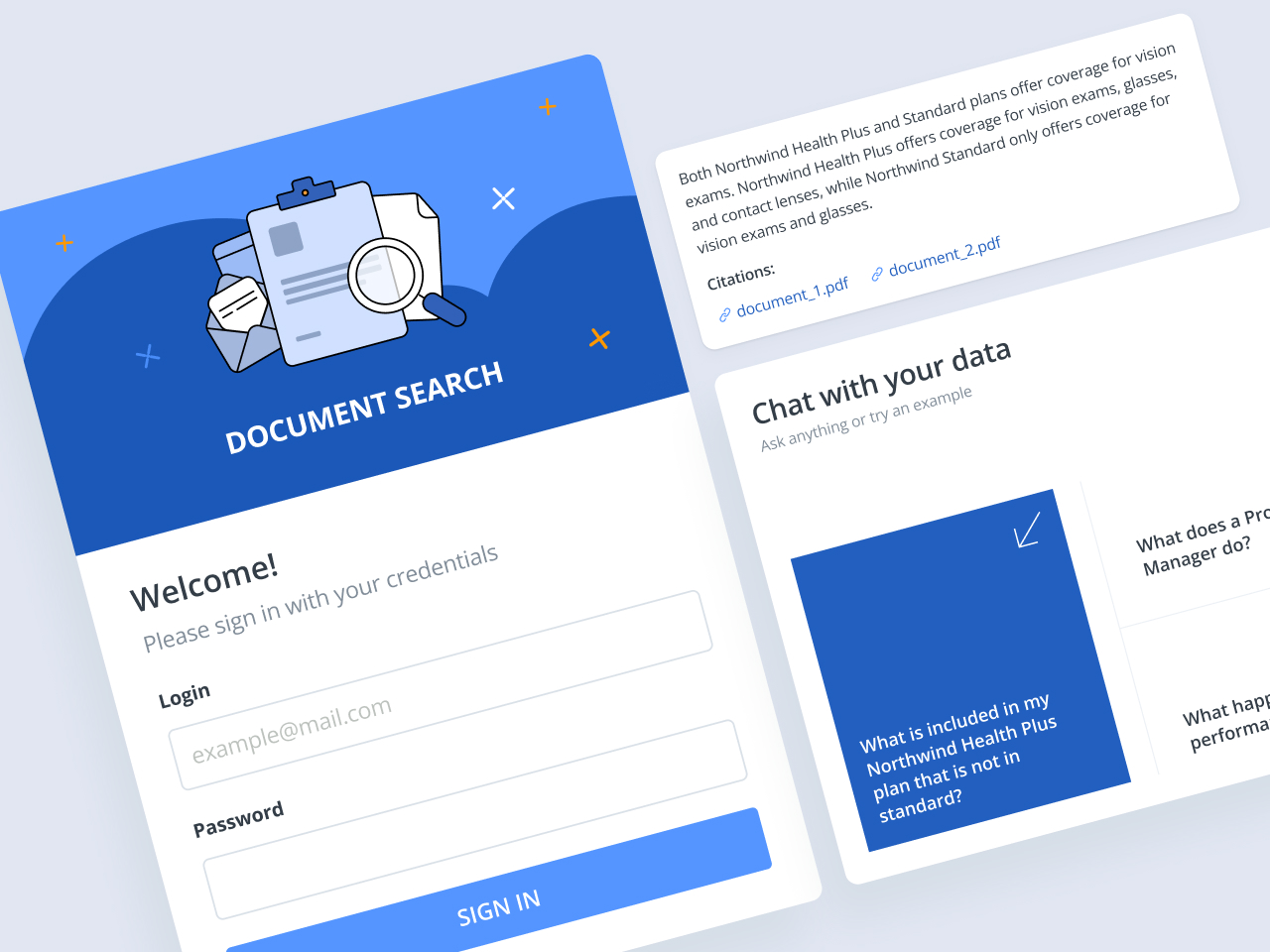
We recommend Emerline as a reliable and skilled tech partner
Collaboration with Emerline was one of our best decisions! Their team quickly understood both the technical requirements and the industry-specific challenges we were trying to solve. We needed a secure, flexible platform that could support data-driven formulation across different industries, and Emerline delivered exactly that. Their team approached the task with professionalism, understood our goals, and built a solution that met both technical and user-facing needs.The result is a working platform that reduces manual work, speeds up R&D, and supports faster, smarter formulation processes across various industries. From day one, communication was smooth, timelines were clear, and we felt fully supported throughout the project. We highly recommend Emerline as a tech partner for your future initiatives.
FastFormulator Key Partner and Project Leader
country
USA
company
FastFormulator
project summary
Emerline developed a custom AI tool that enables companies to train models on their own formulation test results, speeding up R&D processes in the chemical and cosmetics industries.
solution category
AI, ML
industry
Chemical industry